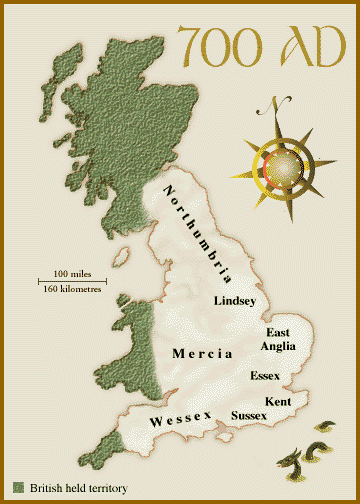Difference between revisions of "Heptarchy"
From Roman2Norman
Jump to navigationJump to search| (One intermediate revision by the same user not shown) | |||
| Line 17: | Line 17: | ||
</td> | </td> | ||
<td width="14%"> | <td width="14%"> | ||
| − | <div align="center">Kent</div> | + | <div align="center">[[Kent]]</div> |
</td> | </td> | ||
<td width="14%"> | <td width="14%"> | ||
| Line 23: | Line 23: | ||
</td> | </td> | ||
<td width="14%"> | <td width="14%"> | ||
| − | <div align="center">Mercia</div> | + | <div align="center">[[Mercia]]</div> |
</td> | </td> | ||
</tr> | </tr> | ||
| Line 60: | Line 60: | ||
</td> | </td> | ||
<td width="14%"> | <td width="14%"> | ||
| − | <div align="center">Sussex</div> | + | <div align="center">[[Sussex]]</div> |
</td> | </td> | ||
<td width="14%"> | <td width="14%"> | ||
Latest revision as of 18:14, 2 April 2007
This is the name used to describe the configuration of the rulership of England (excepting Scotland and Wales) during the Anglo-Saxon period and continuing until the Viking invasion and the advent of the Danelaw. The seven major kingdoms of which the Heptarchy was comprised are listed below. The kingdom of Lindsey was absorbed early on by Northumbria, and later by Mercia, but had ceased to exist as an independent kingdom well before the arrival of the Vikings.
|
East Anglia
|
Essex
|
|||||
|
Northumbria
|
Wessex
|
|||||

Image courtesy of Britannia.com, LLC (© 1999), used with permission.